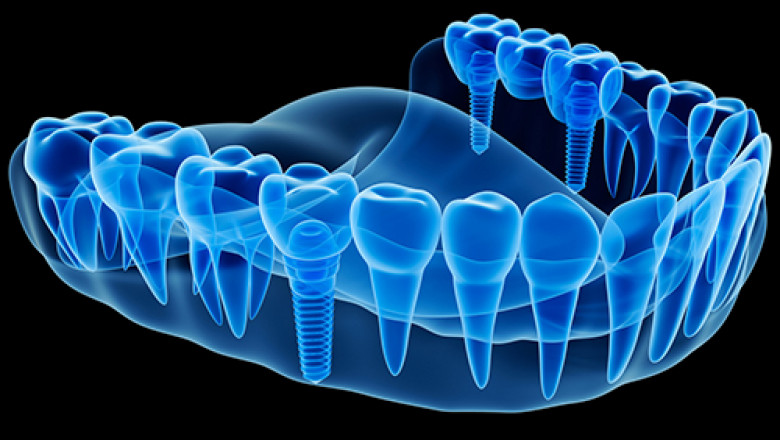views

If you’ve lost a tooth to decay, gum disease or trauma, you may be worried about whether or not it will cause you problems down the road. And you’re right to be concerned since missing teeth can indeed create problems.
Gaps in your smile affect more than your appearance. They can also harm your overall health and the soundness of your remaining teeth. Here are some facts to consider as you think about your options.
FACTS ABOUT ADULT ORAL HEALTH
Most adult smiles include 32 original teeth.In some cases, the molars we call “wisdom teeth” have been removed to make room for other adult teeth coming in. In other cases, teeth may have been removed as part of orthodontic treatment.
Beyond the teeth that your oral surgeon or orthodontist may have removed over the years, you should have a full set of healthy teeth. When one or more teeth are missing, problems often begin.
FEELING SELF-CONSCIOUS ABOUT YOUR SMILE
If there are unsightly gaps in your smile, you may feel self-conscious and embarrassed every time you open your mouth. The loss of a front tooth can be especially hard on your confidence and self-esteem.
Many people have a strong emotional reaction to losing their teeth. They may remember family members who had flawed smiles or wore ill-fitting dentures. This may cause them to worry that they’ll end up the same way, feeling reluctant to smile and speak in public.
Some people try to cope by covering their mouths when they speak and avoiding the temptation to laugh or smile. Of course, this creates other problems in social settings. Feeling confident when you smile or speak is a crucial part of relating comfortably with others. It’s easy to see how a missing tooth can affect your confidence with friends, family and business associates.
GAPS CAN CAUSE OTHER TEETH TO MOVE AROUND
Your teeth may feel firmly set in your jawbone, but the truth is that teeth can reposition themselves over time. In some cases, this is a positive thing – since teeth may need to adjust to changes brought on by aging and other factors.
However, when one or more teeth are lost to decay or trauma, nearby teeth may begin to move into the void. This shifts them out of their normal position, which increases risks for decay and gum disease.
If a lower tooth is extracted, the opposing tooth in the upper jaw may move into the missing tooth space. This also may result in the tooth’s root being exposed, which creates increased risks for inflammation and disease. Sometimes, this leads to additional dental work such as fillings, crowns, and even extractions.
WHY DENTAL IMPLANTS MAKE MORE SENSE
Dental implants feel and function like natural teeth. They are the next best thing to healthy,original teeth. Dental implants are permanent replacements for failing or missing teeth. They are the only option that replaces both the root and the tooth crown.
This is achieved by using titanium supports in place of the root beneath replacement teeth, such as crowns, bridges, and dentures. You can use implants to replace a single tooth or several teeth.
The dental implant is inserted into the jaw,where it becomes part of the existing bone. This process is called Osseo integration. It produces a secure bond between the tooth and the surrounding bone.
If your mouth has shrunk due to bone loss and can no longer support dentures, dental implants may be the only choice to restore normal oral function. Once implants are in place, they preserve bone and stimulate natural bone growth, preventing shrinkage and loss.
Your healthy teeth are protected by dental implants since they fill the void and keep neighboring teeth from shifting.Implants will restore your ability to eat and speak naturally. They allow you to smile and laugh with as much confidence as you did before.












